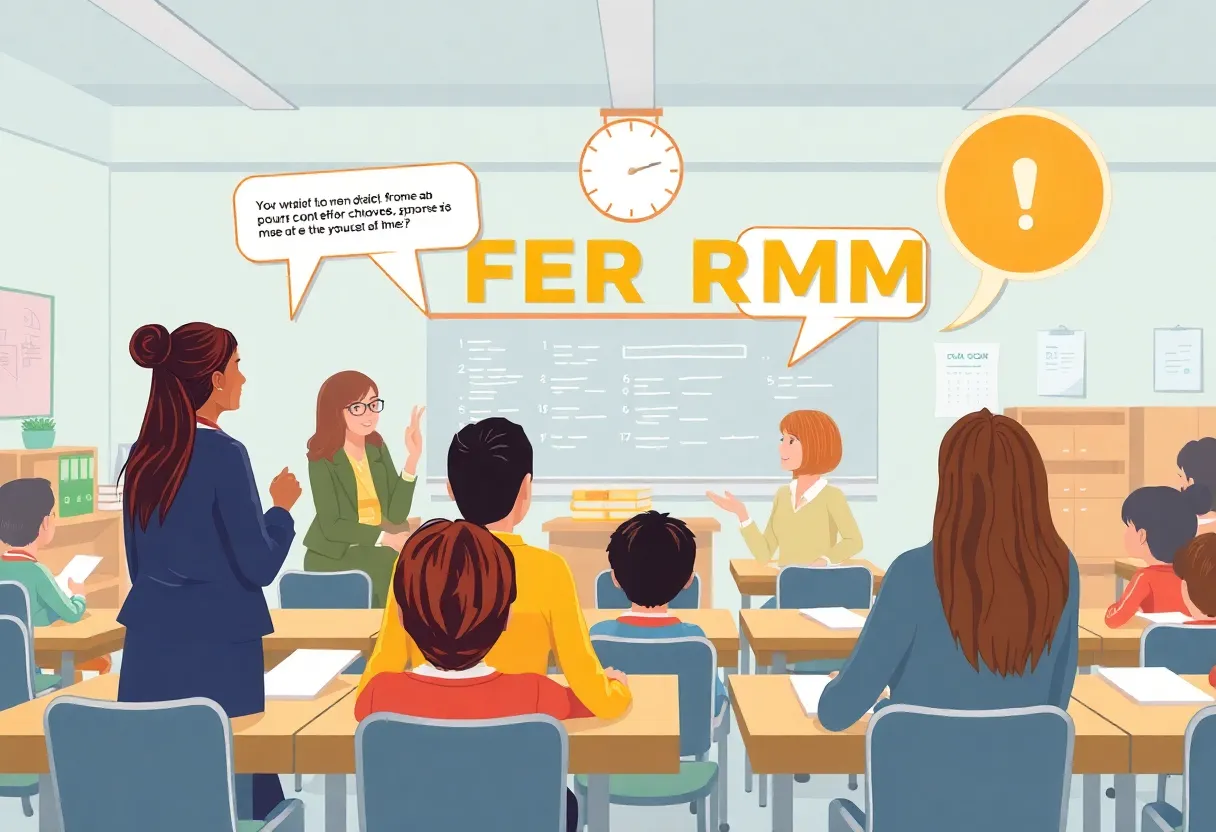News Summary
The Philadelphia School District is reforming its reassignment rooms, known as ‘rubber rooms,’ where educators accused of misconduct await investigations. Superintendent Tony B. Watlington Sr. announced improved procedures, including weekly case monitoring and better communication, resulting in a significant reduction in backlogged cases. Despite these advances, challenges remain with conditions in these spaces and lengthy investigation times. The reforms aim to enhance efficiency while addressing concerns about staff being paid without teaching. These changes signal a transformative step for the district and its employees.
Philadelphia’s “Rubber Room” System Gets a Much-Needed Overhaul!
In the heart of Philadelphia, the School District is taking bold steps to reform its controversial reassignment rooms, commonly known as the “rubber rooms.” These spaces have been where teachers and staff accused of misconduct find themselves waiting for investigation outcomes, often for uncomfortable stretches of time.
City Council Takes Action
It all started a few months ago when City Councilmember Isaiah Thomas raised concerns about this problematic process, pushing for hearings to tackle the situation head-on. Fast forward to now, and Superintendent Tony B. Watlington Sr. has shared some exciting changes that aim to improve the way things work in these reassignments.
Better Communication and Monitoring
At a recent news conference, Watlington highlighted how the district is upping its game in terms of case processing and communication. One of the key reforms includes a weekly case monitoring system designed to track progress and keep things moving along. Additionally, an intake process is now in place so individuals assigned to these rubber rooms can have a better understanding of their circumstances.
Reducing Backlogs
One of the most impressive changes is the dramatic reduction in backlogged investigations. Since July 2024, the number of cases taking longer than 60 or 90 days to complete has plummeted by a staggering 87%. The backlogged cases decreased from 46 all the way down to just 6 by January, a clear indicator that the reforms are making a difference.
Room for Improvement
As of January, there were still 66 employees stuck in what can only be described as windowless conference rooms with minimal supervision and very few activities. For many, their time in these rubber rooms feels surreal—some have even formed friendships and thrown parties. But the lack of information about their cases has led to frustration and uncertainty.
Employees have voiced concerns about poor conditions in these spaces too, mentioning cleanliness issues and instances of pest problems, including bedbugs. It’s clear that the rubber room environment is not just about isolation; it’s also about dealing with uncomfortable circumstances.
Investigation Challenges
The district’s policy clearly states that investigations should ideally be finished within 60 days, or 90 days for Title IX discrimination matters. However, there are several who’ve found themselves waiting not just months, but in some cases, years to find resolution. Watlington admitted that some of these delays stem from sluggish case management, as well as a lack of swift participation from individuals involved in the investigations.
Reforms Aim for Efficiency
In addition to streamlining the investigation process, there’s a push to enhance communication with staff about what they can expect during their time in the rubber rooms. The district is committed to regularly updating the school board and City Council on the status of ongoing cases, ensuring transparency and accountability.
Still Room for Progress
While there have been notable improvements, Watlington has cautioned that not every case can be resolved within the specified timelines, particularly when dealing with complex situations. There hasn’t been an increase in staffing to speed things up just yet, but the district is actively searching for a new deputy chief of investigations to help lighten the load.
Cost Concerns Voiced
Councilmember Thomas has expressed worry over the financial implications of paying staff who are not currently teaching, yet he understands the necessity of thorough investigations to ensure student safety. On a positive note, recent data shows a 21% decline in the number of reassigned employees, dropping from 84 to 66 since January, showcasing the district’s ongoing efforts to turn things around.
As Philadelphia moves forward with these changes, the hope is that both the staff and the system can soon see brighter days ahead, transforming the rubber room experience into a more manageable process for everyone involved.
Deeper Dive: News & Info About This Topic
HERE Resources
Additional Resources
- Metro Philadelphia: School District Rubber Room Backlog
- The Inquirer: Philly Schools Rubber Room Reforms
- PhillyVoice: Reassignment Rooms in Philadelphia Schools
- Fox29: Rubber Rooms Holding Teachers Under Investigation
- MSN: City Council Wants Answers on Philly Schools Rubber Rooms
- Wikipedia: Philadelphia
- Google Search: Philadelphia School District
- Google Scholar: Philadelphia Rubber Rooms
- Encyclopedia Britannica: Philadelphia
- Google News: Philadelphia Schools







